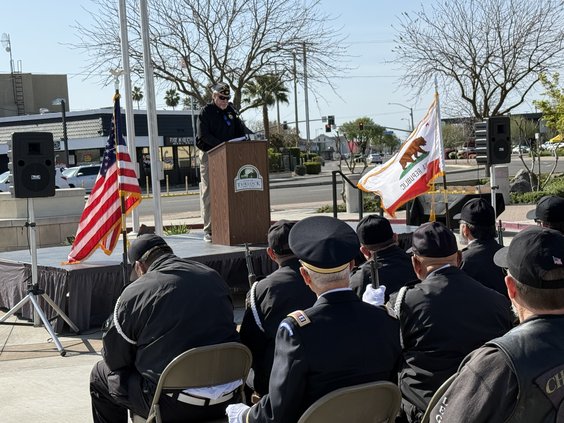Since being invented in Turlock by Dr. Marion Collins in 1956, MedicAlert — the company that developed medical identification bracelets — has helped millions of members in the United States with chronic medical conditions receive rapid emergency care.
August is MedicAlert Awareness Month, created by the foundation that is still headquartered in the city. It aims to raise awareness about the importance of medical IDs and their ability to provide critical information to first responders or bystanders in the event a person is unable to communicate during a crisis.

“In a medical crisis, every second counts,” said Karen Cassel, CEO of the MedicAlert Foundation. “People with medical conditions need a way to communicate their needs in an emergency — especially if they're incapacitated. A medical information bracelet like MedicAlert provides critical medical information, potentially saving lives.”
MedicAlert stressed that being prepared for emergencies is crucial, especially for those with allergies or other chronic medical conditions like asthma, diabetes, dementia, epilepsy and heart disease. While devices like epinephrine autoinjectors and insulin pumps are essential tools, a critical piece of the preparedness puzzle is often overlooked: medical identification.
According to MedicAlert, 2.6 million people receive harmful emergency medical treatment each year that could have been prevented; and 250,000 people die because they are misdiagnosed in an ER. The foundation believes that these tragic results can be avoided with proper identification through a medical ID, resulting in better emergency outcomes.
“This August, we encourage everyone to learn more about medical IDs and consider getting one for themselves and their loved ones,” Cassel continued.

Collins invented the Medic Alert bracelet in 1953, after his 14-year-old daughter, Linda, accidentally cut herself while playing with cousins. The cut required stitches. In the emergency room, the physician took the normal course of action and administered a tetanus antitoxin. Linda suffered a near-fatal allergic reaction and went into a coma. Collins knew of his daughter’s allergy but was out of town when the incident happened. Thankfully, Linda survived.
Collins then became determined to find a solution that would protect her in an emergency by making her allergy known to medical personnel. When their daughter traveled, Collins and his wife, Chrissie, attached a paper note to one of Linda’s ornamental bracelets as a simple makeshift medical ID. The note would explain to any emergency personnel that she was allergic to tetanus antitoxin, aspirin and sulfa.
When Linda went off to college in 1956, Collins’ idea for a more durable solution was born. Working with a jeweler in San Francisco, he designed the first ever MedicAlert ID bracelet. He chose an emblem with the staff of Asclepius, the Greek god of medicine and healing, and engraved Linda’s allergies on the bracelet.
Soon after, they launched the MedicAlert Foundation to make their life-saving bracelet available to many more people living with allergies and other chronic medical conditions.

For more information, visit medicalert.org.









